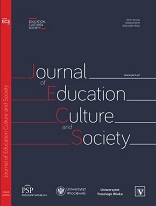Educational interest in relation to academic achievement of the secondary school students in Meghalaya, India
Educational interest in relation to academic achievement of the secondary school students in Meghalaya, India
Author(s): Caroline Lyngdoh Tron, Brinda Bazeley KharbirymbaiSubject(s): Social Sciences, Education, Higher Education
Published by: Fundacja Pro Scientia Publica
Keywords: educational interest;academic achievement;secondary school students;
Summary/Abstract: Aim. The aim of this study is to present the relationship between educational interest and academic achievement of the secondary school students in East Khasi Hills District, Meghalaya, India. The standardised tool used for the study is the Educational Interest Record by Kulshrestha (2016). In order to assess the academic achievement, the final year examination results of students were collected. Methods. The sample of the study comprised of 300 secondary school students drawn from fifteen secondary schools under Meghalaya Board of School Education. Stratified random sampling was used with equal representation to gender and locale. Analysis was done by using Pearson ‘r’ (Product Moment Correlation) and t-test. Results. The findings of the study revealed a negative relationship between educational and academic achievement. There is a significant difference in the educational interest in terms of gender, but no significant difference was found between locales of the secondary school students. Conclusions. The assessment of the educational interest may be considered one of the crucial methods used in the education system, as teaching of subjects alone cannot help the students in the educational development. On the other hand, academic achievement is one of the areas in which relatively accurate information can be obtained with relation to individual’s ability or capacity. The study has provided information which indicate that students do not have a clear understanding about their own interests and abilities. Hence, guidance and counselling need to be integrated into the secondary school curriculum in the state in order to help the students better understand their interests and abilities. Educational guidance and counselling will also enable the students to plan both their higher education and career in thefuture.
Journal: The Journal of Education, Culture, and Society
- Issue Year: 12/2021
- Issue No: 1
- Page Range: 555-562
- Page Count: 8
- Language: English

